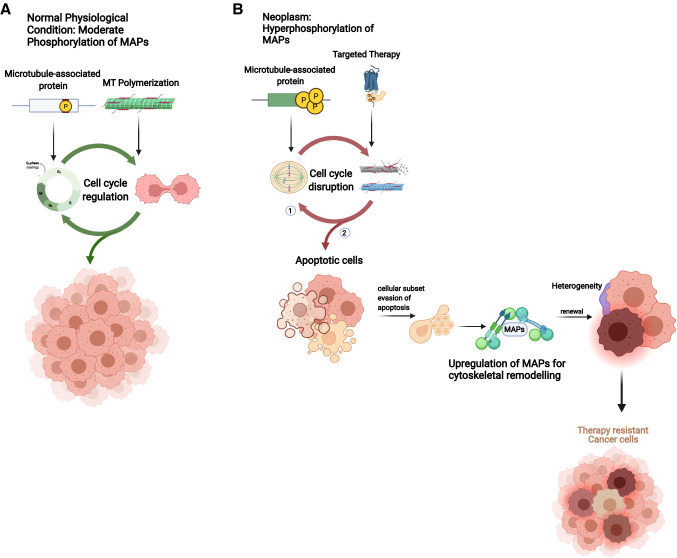Fig. 1.
CAPs confer therapeutic resistance on cancer cells. A MAPs stabilize and polymerize MTs for effective and maximal functional capacity of cellular functions. In normal physiology, moderate phosphorylation of MAPs stabilizes and polymerizes the MT to regulate numerous cellular functions and positive control of the cell cycle. B MAPs clip αβ-heterodimers of tubulins together and failure to exert these functions due to hyperphosphorylation in cancer cells either leads to, (1) distortion of MT polymerization and stabilization leading to mitotic-slippage and misregulation of the cell cycle, or (2) evasion of apoptosis in response to targeted therapy by virtue of unstable MT polymers and high expression of MAPs in response to MT destabilization-rescue, and successful rescue leads to heterogeneity in the cell population, giving rise to more aggressive and drug-resistant clones

